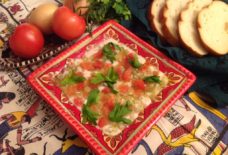In the New Syria Why Do Kurds Matter?

By: Ghassan Rubeiz / Arab America Contributing Writer
Things are looking up in Syria for the first time in a long while. The new transitional regime is cooperating and communicating with diverse local communities days after taking the capital. The new leaders appear to be respecting the freedoms of faith and conscience. They are also working with existing cabinet ministers to facilitate a transition to a new government and preparing for a United Nations conference, which will guide a political transition. By and large, Syrians are euphoric, enjoying their new freedom and celebrating the simple pleasure of being Syrians, regardless of ethnic or political background. Thousands of political prisoners of every stripe are now free. And the door is wide open for the return of over seven million refugees from Turkey, Lebanon, Jordan, Europe and elsewhere.
As the honeymoon fades, however, Syrians will need to resolve questions about ideology, governance, and inclusion. The armed forces of Iran, Israel, and Turkey, not to mention the United States and Russia, have all established or maintained a presence in Syria throughout the civil war. The situation is still in rapid flux, as reported by Armenak Tokmajyan: “With battles ongoing between [Turkish]-backed forces and the Kurdish-dominated Syrian Democratic Forces in the northeast, an Israeli incursion in southern Syria, and a somewhat chaotic situation in Damascus, the conflict is far from over, leaving a highly fluid state of affairs in place, marked by a mixture of hope and fear about what lies ahead.”
Against this volatile backdrop, one of the biggest challenges facing Syria is the separation between the Kurdish communities in the northeast from the rest of the country. The leaders of the new regime in Syria can ill afford to ignore or antagonize the Kurdish community, which comprises two million people who feel more Kurdish than Arab. They control a third of Syria’s territory, including precious oil resources. In cooperation with the US military, they are also keeping the remaining ISIS forces in check. If the new Syrian leadership wants a productive relationship with the United States, cooperating with the Kurdish leadership will be a move in the right direction. Doing this without arousing Turkish hostility will be a challenge; on the other hand, if it does not settle the Kurdish question, Syria may drift into a total dependence on Turkey.
Kurds are indigenous to Islam, the Arab world, and the larger Middle East. They hold a pragmatic relationship with Washington and Tel Aviv. If given better recognition and administrative autonomy, the Kurds could become an agent of empowerment for the entire region.
If Syria can reconcile with its Kurdish community, the fall of the Assad dynasty could mean a return to pluralistic ideals that have lain dormant since the Arab Spring: a “fall of the Berlin Wall” moment for the Arab world. But if Syria continues to be divided by factional politics, Assad’s fall may remind us more of Gaddafi’s chaotic demise in 2011.
Ghassan Rubeiz is the former Middle East Secretary of the World Council of Churches. Earlier, he taught psychology and social work in his country of birth, Lebanon, and later in the United States, where he currently lives. For the past twenty years, he has contributed to political commentary and delivered occasional public talks on subjects related to peace, justice, and interfaith. You can reach him at rubeizg@gmail.com
The views and opinions expressed in this article are those of the author and do not necessarily reflect the position of Arab America. The reproduction of this article is permissible with proper credit to Arab America and the author.
Check out our Blog here!








